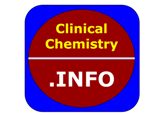Clin Chem Lab Med. 2025 Sep 15. doi: 10.1515/cclm-2025-0841. Online ahead of print.
ABSTRACT
The integration of artificial intelligence (AI) and machine learning (ML) into laboratory medicine shows promise for advancing diagnostic, prognostic, and decision-support tools; however, routine clinical implementation remains limited and heterogeneous. Laboratory data presents unique methodological and semantic complexities – method dependency, analyte-specific variation, and contextual sensitivity-not adequately addressed by general-purpose AI reporting guidelines. To bridge this gap, the EFLM Committee on Digitalisation and Artificial Intelligence (C-AI) proposes an expanded checklist to support assessment of requirements and recommendations for the development of AI/ML models based on laboratory data. Building upon the widely adopted ChAMAI checklist (Checklist for assessment of medical AI), our proposal introduces six additional items, each grounded in the CRoss Industry Standard Process for Data Mining (CRISP-DM) framework and tailored to the specificities of laboratory workflows. These extensions address: (1) explicit documentation of laboratory data characteristics; (2) consideration of biological and analytical variability; (3) the role of metadata and peridata in contextualizing results; (4) analyte harmonization and standardization practices; (5) rigorous external validation with attention to dataset similarity; and (6) the implementation of FAIR data principles for transparency and reproducibility. Together, these recommendations aim to foster robust, interpretable, and generalizable AI systems that are fit for deployment in clinical laboratory settings. By incorporating these laboratory-aware considerations into model development pipelines, researchers and practitioners can enhance both the scientific rigor and practical applicability of AI tools. We advocate for the adoption of this extended checklist by developers, reviewers, and regulators to promote trustworthy and reproducible AI in laboratory medicine.
PMID:40966119 | DOI:10.1515/cclm-2025-0841
